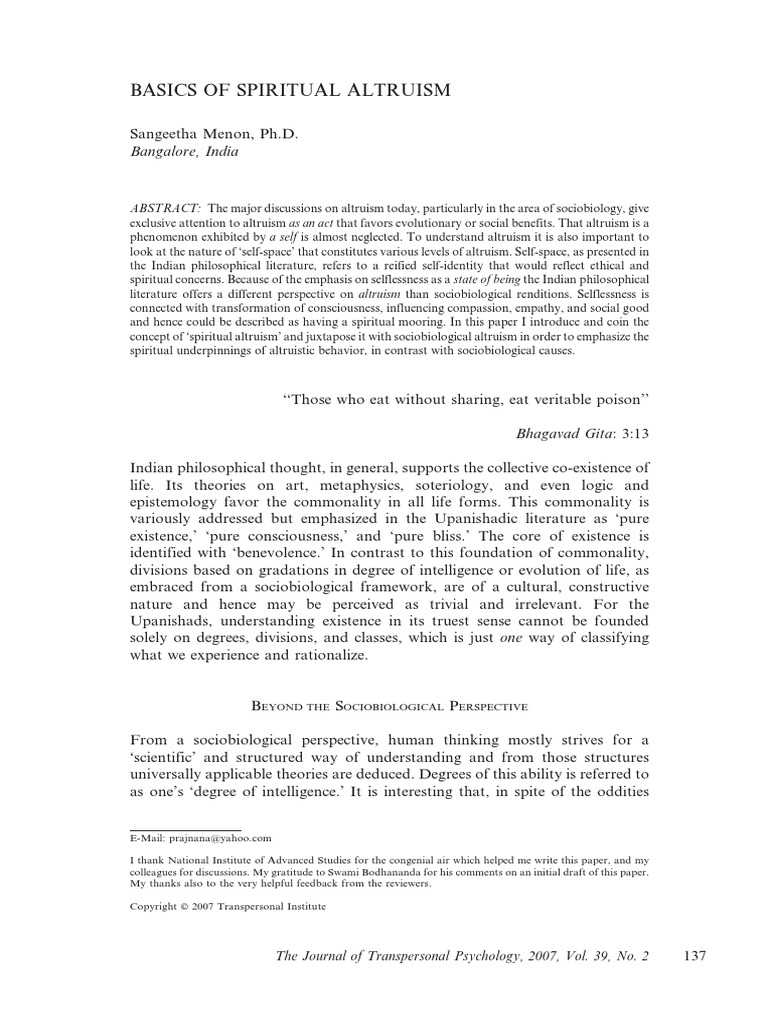In the realm of spiritual exploration, the interrelationship between altruism and spirituality is pivotal. The Bahá’í teachings illuminate the profound synergy between these two concepts, offering a transformative lens through which to perceive the plight of the impoverished and the marginalized. As one delves into these teachings, a paradigm shift occurs—one that challenges conventional notions of philanthropy and beckons the spiritual seeker into an expansive understanding of service to humanity.
The Bahá’í Faith emerges as a compelling framework that transcends mere humanitarian assistance. At its core, it promulgates the interconnectedness of all human beings, urging adherents to recognize the dignity of every soul. This intrinsic value is not confined to the affluent or the privileged; rather, it extends generously towards those who find themselves in dire straits. Such recognition cultivates an underlying spirit of altruism, characterized by selflessness and a commitment to the upliftment of society.
Altruism, in the Bahá’í context, is infused with deep spiritual significance. It is not merely an act of giving but a profound manifestation of love and unity. The teachings emphasize that true altruism arises from the understanding that service to others is tantamount to service to one’s Creator. This pivotal understanding compels believers to view their contributions—whether material or spiritual—as integral to the holistic development of both the giver and the recipient.
One of the hallmarks of Bahá’í philosophy is the notion that poverty extends beyond economic deprivation. The Bahá’í writings elucidate various dimensions of poverty, encompassing spiritual, intellectual, and emotional realms. This broad perspective fosters a compassionate approach, advocating not only for material assistance but also for the enrichment of the human spirit through education, empowerment, and community-building initiatives. The commitment to elevate the poor, therefore, encompasses addressing both their physical needs and their spiritual aspirations.
The Bahá’í community actively engages in various social and economic development projects designed to lift individuals out of poverty. These initiatives are born out of the recognition that sustainable change requires a multifaceted approach. Education, a potent tool for breaking the cycle of poverty, is emphasized as a cornerstone for empowerment. By equipping individuals with knowledge and skills, the Bahá’í teachings foster self-sufficiency and ambition—essential traits for overcoming adversity.
Moreover, the Bahá’í perspective encourages a shift towards systemic change. Altruism is not merely a response to immediate needs but a call to address the underlying structures that perpetuate inequality. By fostering an environment where social justice is prioritized, the Bahá’í Faith advocates for long-term strategies that dismantle oppressive systems and create equitable platforms for all. This broader approach engenders a transformative impact on society, where uplifting the poor becomes a collective responsibility rather than an individual endeavor.
As one engages deeply with the Bahá’í teachings, a reorientation of values becomes apparent. The emphasis on service within the framework of spirituality cultivates a culture that prioritizes collective well-being over individual gain. This ethos aligns seamlessly with the principle that the prosperity of one is inextricably linked to the prosperity of all. Such a profound shift in perspective incites curiosity and encourages individuals to explore their roles within a larger tapestry of humanity.
The spiritual dimension of altruism in Bahá’í thought beckons individuals to reflect internally. Is altruism merely an external act of kindness, or does it illuminate the divine attributes within each person? This introspective approach reveals the potential for personal transformation, as engaging in altruistic acts can lead to heightened spiritual awareness and connection with others. The act of lifting the poor transcends physical assistance; it becomes a pathway to embodying virtues such as humility, compassion, and generosity.
The Bahá’í teachings resonate with the idea that the elevation of society hinges upon the elevation of its most vulnerable members. The call to action is clear and poignant: to forget oneself in the service of others is to engage in the most sacred form of worship. This perspective not only enhances one’s personal spiritual journey but also invigorates communities, infusing them with hope and resilience amidst adversity.
Furthermore, the Bahá’í approach appreciates the diverse contributions of individuals from all walks of life towards alleviating suffering. It espouses inclusivity and collaboration, recognizing that each person’s unique talents and insights can play a crucial role in the collective effort to uplift the impoverished. The confluence of diverse experiences creates a richer dialogue and cultivates innovative solutions to pressing social challenges.
In summation, the intersection of altruism and spirituality within the Bahá’í teachings offers a profound and expansive understanding of what it means to lift the poor. This dynamic interplay engenders a transformative ethos that transcends mere obligation, inviting individuals to engage in meaningful service rooted in love and compassion. By embracing this integrated perspective, communities can forge paths of sustainable development that honor the dignity of every individual and artfully weave the fabric of a more just and altruistic society.
